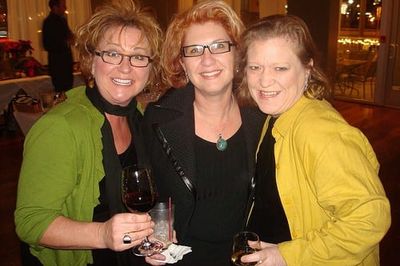A new study shows that the number of Tennessee same-sex couples has dramatically risen by 33 percent over a five-year-period.
An analysis of U.S. Census data by The Williams Institute for Sexual Orientation Law and Public Policy regarding gay men, lesbians and bisexuals shows that from 2000 to 2005 the number of same-sex couples in Tennessee increased by 33% from 2000 to 2005. The increase is more than five times greater than the six percent rate of growth in the U.S. population overall.
The growing number of same-sex couples in Tennessee could have an affect on the Nov. 7 election.
The same study documents a 30 percent increase in the number of same-sex couples in the United States over five years, from nearly 600,000 couples in 2000 to almost 777,000 in 2005.
"Most likely, as stigma associated with same-sex partnering and homosexuality decreases, more same-sex couples are willing to identify themselves as such on government surveys," said Gary Gates, senior research fellow at the Williams Institute and author of the study. "This is especially remarkable considering that states offering formal recognition of same-sex relationships in the first half of this decade --Vermont, Massachusetts, Connecticut, California, and New Jersey-saw relatively small gains in the number of gay couples."
Aside from a more welcoming cultural climate, however, the turbulent political landscape for gay people might also be a large factor pulling couples out of the closet. According to the Williams study, the ten states with the largest increases in same-sex couples were the sites of some of the nastiest political battles and biggest gay losses since 2000, such as Washington State and New Hampshire. The rest of the surge of gay couples came from the Heartland, including Ohio, Minnesota, Colorado, Iowa, and Missouri, states with hotly contested races and gay-related ballot measures.
Since 2000 most of that top ten have passed laws and constitutional amendments that bar the door to marriage, and sometimes-other forms of recognition, for same-sex couples.
"The Midwest has historically not been a region known for its large GLB population," said Gates. "The fact that more same-sex couples are openly acknowledging their relationships in America's heartland is significant.
Many Americans assume that GLB people cluster in just a few large cities in the Northeast and the West. Our analysis found that LGB people were spread throughout the country."
"Some might expect that heated debate and disappointing losses would drive gay men, and lesbians and bisexual people back into anonymity and silence.
But the campaigns against gay rights may have had the opposite effect," said M.V. Lee Badgett, research director at the Williams Institute. "Let's call it the 'Anita Bryant effect'," said Badgett, referring to the anti-gay 'Save Our Children' campaign by Bryant in the 1970's that mobilized the gay community in Florida and brought many out of the closet.
Badgett continued, "By launching anti-gay campaigns in the Midwest, gay rights opponents greatly increased the visibility of gay people and issues. As the media provide more accurate reporting on GLB issues, people in these states heard more about their lives - repeatedly. More exposure and more self-recognition, plus a political incentive to come out, all create a path towards self-acceptance and coming out."
The release of the ACS data also marks the first time that data regarding same-sex couples, and thus GLB people, are available for current congressional districts. The statistics indicate that GLB people live in every Congressional district in the country.
"Considering all the attention given to same-sex couples in the political arena, estimates of the size of the GLB population by Congressional District are of particular importance as we approach the November 7 elections," said Gates. He noted that this increased visibility of GLB people could effect the upcoming midterm elections. "The size of the out gay electorate is above the national average in some of the most closely watched Congressional races in the upcoming election," concluded Gates.
He noted that in addition to Congressional races, the ACS data might shed light on the outlook of upcoming same-sex marriage prohibitions. "Six of the eight states facing constitutional amendments banning same-sex marriage showed greater than average growth in the number of same-sex couples since 2000," continued Gates. "In Arizona, Colorado, South Carolina, Tennessee, Virginia, Wisconsin, more GLB citizens are directly impacted by these measures than voters might think."
